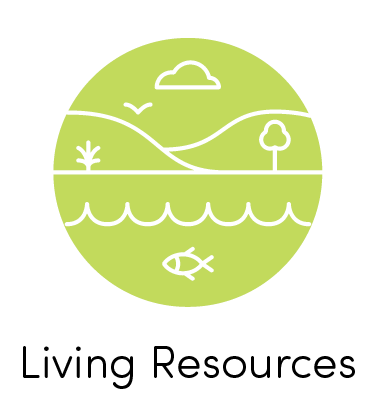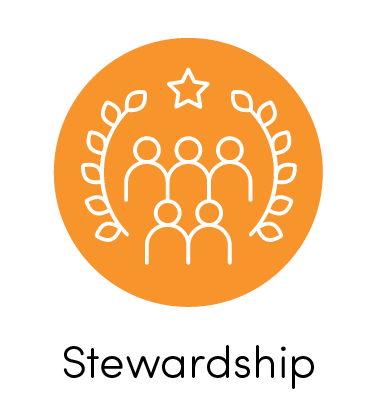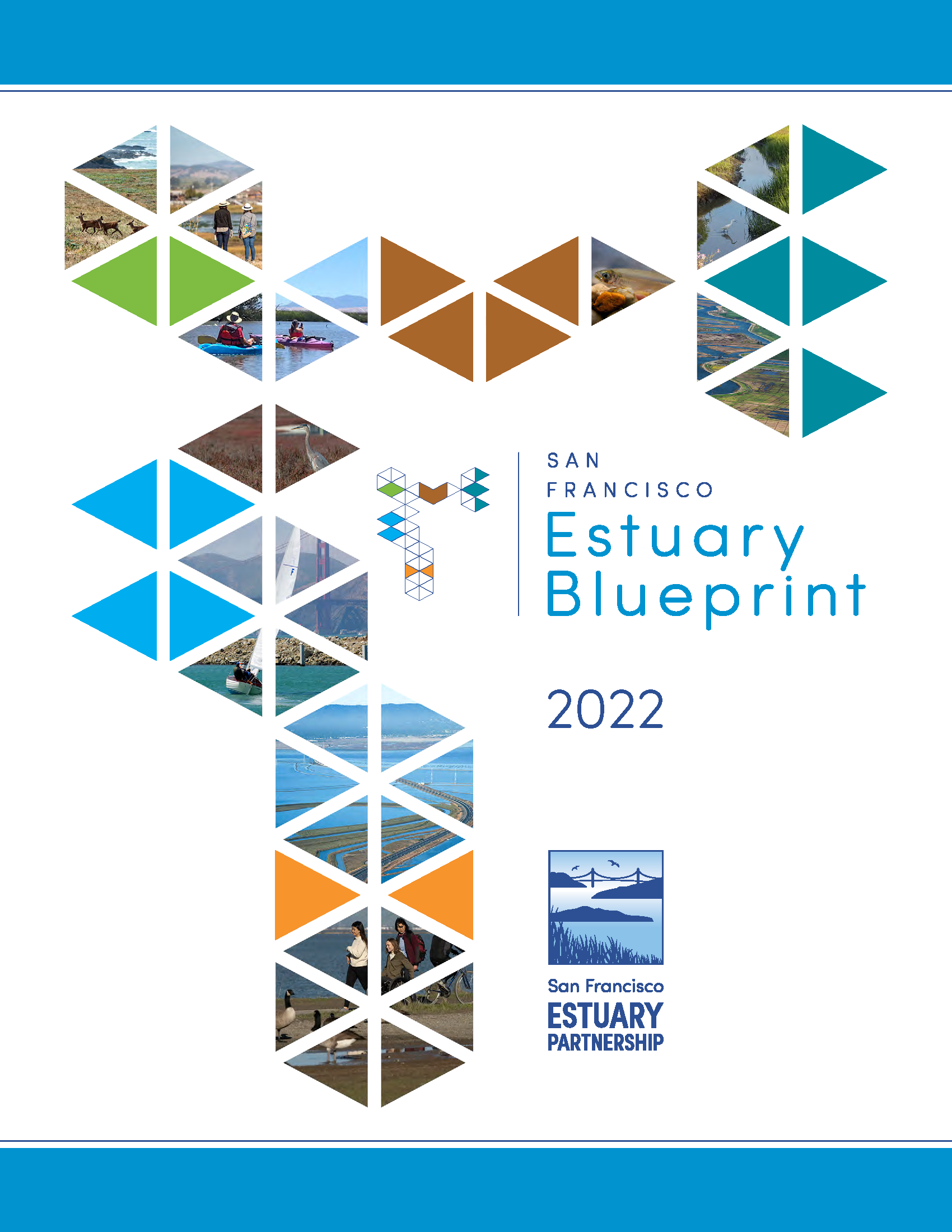Action 3: Adaptation Planning
← Back to Estuary Blueprint Actions
Overcome challenges to accelerate implementation of climate adaptation projects that prioritize natural and nature-based strategies.
Remove barriers that stand in the way of implementing projects that prepare and adapt the Estuary’s ecosystems and communities for climate change. Barriers to the implementation of projects that address climate change include lack of technical expertise and data, lack of funding, and regulatory policies and processes.
Overview
Advancing natural and nature-based infrastructure is a key strategy for the timely implementation of climate resilience projects. However, there are many barriers that stand in the way of projects so desperately needed by the Estuary’s ecosystems and communities. The lack of technical expertise, data, and funding all hinder projects from being implemented in a timely manner. Additionally, regulatory and permitting processes for these innovative projects can be cumbersome, conflicting, or out-of-date given quickly changing conditions.
Task Description
Implement community-based climate adaptation solutions that prioritize natural resources by supporting frontline communities and community-based organizations as full partners and leaders in adaptation planning and implementation.Task Lead(s)
Bay Area Climate Adaptation Network, Bay Area Regional Collaborative,Task Collaborating Partner(s)
California Department of Water Resources, California State Coastal Conservancy, Metropolitan Transportation Commission and Association of Bay Area Governments, National Oceanic and Atmospheric Administration, San Francisco Bay Conservation & Development Commission, San Francisco Bay Regional Water Quality Control Board, San Francisco Bay Restoration Authority, San Francisco Estuary Partnership, U.S. Army Corps of Engineers, community-based organizations, local jurisdictionsCost Estimate Key
|
Cost Estimate
$$$Milestone(s)
Community-based organizations and frontline communities funded to lead or participate in at least one to two adaptation planning or implementation projects per year.Task Description
Establish a technical assistance “help desk” network that coordinates programs and entities to provide data and technical assistance for climate change adaptation for cities, counties, and other stakeholders that facilitates natural resource protection.Task Lead(s)
Metropolitan Transportation Commission and Association of Bay Area Governments, San Francisco Bay Conservation & Development CommissionTask Collaborating Partner(s)
Bay Area Climate Adaptation Network, Bay Area Regional Collaborative, California State Coastal Conservancy, Delta Stewardship Council, National Oceanic and Atmospheric Administration, San Francisco Bay National Estuarine Research Reserve, San Francisco Bay Water Quality Control Board, San Francisco Estuary Institute, San Francisco Estuary PartnershipCost Estimate Key
|
Cost Estimate
$$$Milestone(s)
Regional climate change adaptation “help desk” network.Task Description
Revise or create regulatory policies, guidelines, or regulations to accelerate natural and nature-based adaptation projects consistent with the overall protection of the health of the Estuary (such as San Francisco Bay Conservation & Development Commission’s creation of new sediment management policies, revision of the Suisun Marsh Protection Plan, San Francisco Bay Regional Water Quality Control Board’s revised sediment reuse and climate change policies, the Delta Stewardship Council’s Delta Plan revised ecosystem guidelines, or creation of new programmatic permitting approaches).Task Lead(s)
San Francisco Estuary Partnership (Coordinator)Task Collaborating Partner(s)
Audubon California, California Department of Fish & Wildlife, Central Valley Regional Water Quality Control Board, Delta Stewardship Council, San Francisco Bay Conservation & Development Commission, San Francisco Bay Regional Water Quality Control Board, U.S. Army Corps of Engineers, U.S. Fish & Wildlife ServiceCost Estimate Key
|
Cost Estimate
$$$Milestone(s)
Three new or revised policies, guidelines, or regulations to facilitate natural or nature-based adaptation projects.Task Description
Strengthen and improve the ability of the San Francisco Bay Restoration Regulatory Integration Team (BRRIT) to accelerate projects and incentivize nature-based approaches.Task Lead(s)
San Francisco Bay Restoration Regulatory Integration Team (BRRIT) Policy Management CommitteeTask Collaborating Partner(s)
Project implementersCost Estimate Key
|
Cost Estimate
$$Milestone(s)
Solutions for one to three high priority issues identified by the BRRIT’s Policy Management Committee.Task Description
Further integrate resilience and natural resource protection into Plan Bay Area by restructuring Metropolitan Transportation Commission and Association of Bay Area Governments’ Priority Conservation Area Program to advance natural and nature-based strategies for climate resilience.Task Lead(s)
Metropolitan Transportation Commission and Association of Bay Area GovernmentsTask Collaborating Partner(s)
California State Coastal Conservancy, San Francisco Bay Conservation & Development Commission, San Francisco Estuary Partnership, local jurisdictionsCost Estimate Key
|
Cost Estimate
$$Milestone(s)
Restructured Metropolitan Transportation Commission and Association of Bay Area Governments’ Priority Conservation Area Program.Task Description
Increase funding for adaptation planning and implementation that values long-term protection of habitats and communities.Task Lead(s)
Metropolitan Transportation Commission and Association of Bay Area Governments, San Francisco Bay Conservation & Development CommissionTask Collaborating Partner(s)
California State Coastal Conservancy, San Francisco Bay National Estuarine Research Reserve, San Francisco Bay Restoration Authority, San Francisco Estuary PartnershipCost Estimate Key
|
Cost Estimate
$Milestone(s)
A sea level rise adaptation funding and investment framework for the San Francisco Bay Area.Task Description
Align Federal Emergency Management Agency hazard planning with climate adaptation planning to secure funding for protection of habitats and use of natural and nature-based strategies.Task Lead(s)
Metropolitan Transportation Commission and Association of Bay Area GovernmentsTask Collaborating Partner(s)
Local jurisdictionsCost Estimate Key
|
Cost Estimate
$$Milestone(s)
15 grant applications submitted to Federal Emergency Management Agency Building Resilient Infrastructure and Communities (BRIC) and/or other Federal Emergency Management Agency grant programs for nature-based adaptation projects.Task Description
Task Lead(s)
Task Collaborating Partner(s)
Cost Estimate Key
|
Cost Estimate
Milestone(s)
Updates and Emerging Issues
While much progress has been made since 2016 with regard to implementing climate adaptation projects, significant challenges remain that threaten our region’s ability to respond to the urgency of current and future climate change impacts. This revised Action seeks to identify and address current barriers that impede timely implementation of shoreline natural and nature-based climate adaptation strategies.
Climate Change Considerations
The unpredictability and scale of climate change impacts will be felt regionally, so any planning that enhances resilience will need to be collaborative and coordinated. This Action recognizes the urgency of the climate crisis while exploring long-term solutions that sustain precious ecosystem processes.
Equity Considerations
This Action focuses on overcoming barriers to accomplishing natural and nature-based infrastructure, which includes building the capacity of frontline communities to be active leaders and collaborators in project planning and implementation.
Blueprint Goals



Connections to Other Actions
Watershed connections provide unique habitat and ecosystem services closely related to or dependent upon:
Action 1: Climate Resilience
Action 2: Equity
Action 4: Adaptation Implementation
Action 5: Watershed Connections
Action 9: Intertidal / Subtidal Habitats
Action 10: Tidal Marsh
Action 11: Transition Zones
